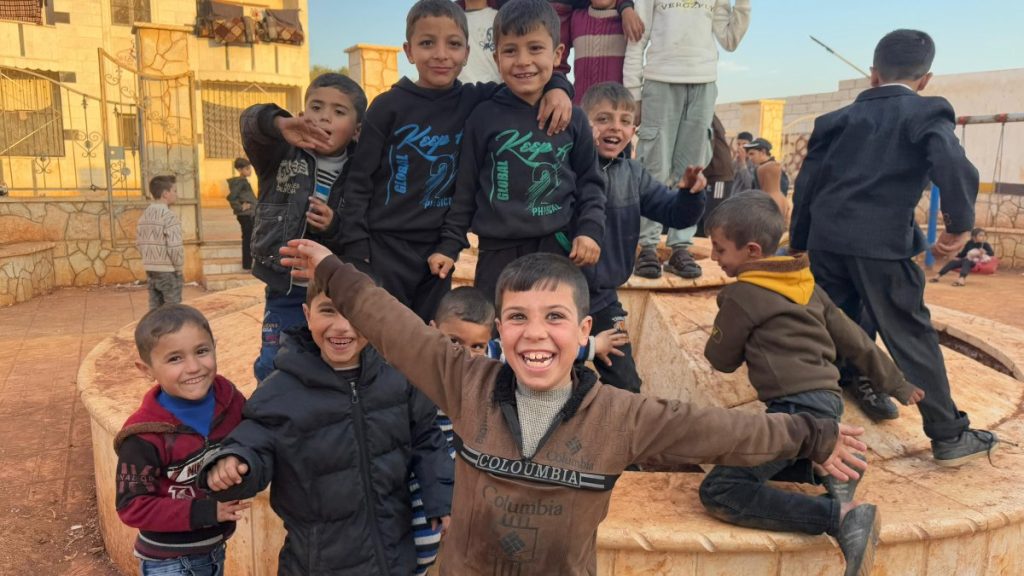The Türkiye Diyanet Foundation (TDV) is providing shelter for 760 children in orphanages across Idlib, Syria, where hundreds of orphans have been left behind by the ongoing Syrian civil war. The children’s needs are being met through a partnership with the Pakistan-based Selam Evi Charity Association, which funds all essential services at the orphanages.
In the Beytüselam Orphan Village, 170 children live in a facility equipped with a park, a futsal court, a basketball court and a cultural center that regularly hosts various activities.
Muhammet Furkan Topçu, TDV’s regional coordinator for Syria, told Anadolu Agency (AA) that alongside the orphans, 230 mothers also receive shelter and care at the facility.
“We have built social living spaces in every orphanage. In the cultural centers, children receive foreign language training and computer courses,” Topçu said, adding that the operational costs for these orphanages are covered annually. “Together with the Selam Evi Charity Association, we provide everything from food packages and blankets to essential winter supplies like coal,” he added.
Topçu highlighted the strong educational framework in place for the children, noting that security, management and rehabilitation teams are also present in the orphanages. “Here, children receive education from preschool to high school. Once they reach high school, we enroll them in external schools that we manage. After graduation, we prepare them for university entrance exams and continue to support their education once they enter university.”
In addition to the educational services, the TDV has also constructed 216 homes as part of a social housing project, ensuring that orphans who reach adulthood are given independent living spaces alongside their families.
Topçu expressed gratitude to the philanthropists who support the orphans, quoting a hadith of the Prophet Muhammad: “I and the person who looks after an orphan and provides for him, will be in Paradise like this,” putting his index and middle fingers together, as he held up two fingers close together.
“We work with this hadith in mind,” he said.


